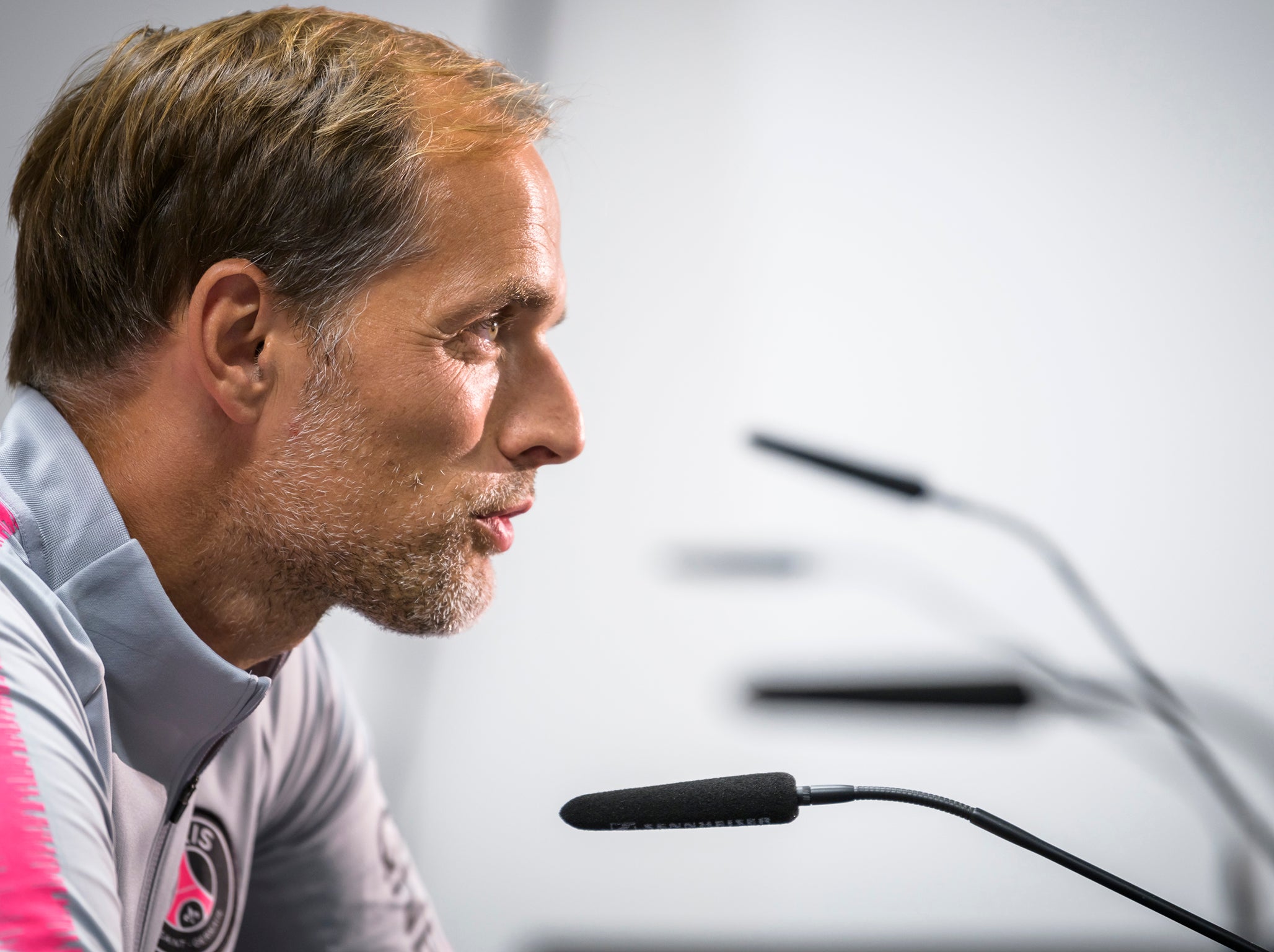Thomas Tuchel must be more than just a football brain to succeed in the Premier League
The German is set to succeed Frank Lampard as Chelsea manager – can he handle the demands?

Your support helps us to tell the story
From reproductive rights to climate change to Big Tech, The Independent is on the ground when the story is developing. Whether it's investigating the financials of Elon Musk's pro-Trump PAC or producing our latest documentary, 'The A Word', which shines a light on the American women fighting for reproductive rights, we know how important it is to parse out the facts from the messaging.
At such a critical moment in US history, we need reporters on the ground. Your donation allows us to keep sending journalists to speak to both sides of the story.
The Independent is trusted by Americans across the entire political spectrum. And unlike many other quality news outlets, we choose not to lock Americans out of our reporting and analysis with paywalls. We believe quality journalism should be available to everyone, paid for by those who can afford it.
Your support makes all the difference.In his final days at Paris Saint-Germain, during an interview that signalled a swift and certain end, Thomas Tuchel had accurately summed up the conundrum his employers face when they plump for one of the most gifted managers of a generation.
“I only want to be a coach,” he told Sport 1. Those seven words are a good window into why the 47-year-old’s spells tend to sour: he is exceptional on the training pitches and in the technical area, but struggles to find common ground with boards, staff, some players - as the spat with Kylian Mbappe showed - and the media.
It feeds into the testimony of many who have worked with him during his last three jobs at Mainz, Borussia Dortmund and PSG, where there is no shortage of appreciation for his football brain, but also a warning that he is wired to fall out with plenty both privately and publicly.
At Dortmund there was a breakdown in the relationship between Tuchel and their former chief scout Sven Mislintat over the recruitment of Oliver Torres. The deal had been negotiated but Tuchel changed his mind during the closing stages of the transfer and it was never completed.
To the club, it felt like a betrayal of their processes and faith in their transfer diligence.
BVB chief executive Hans-Joachim Watzke and Tuchel also clashed over the handling of the situation after the team bus was attacked by roadside bombs in April 2017.
The manager understandably did not want his squad to line up against Monaco only a day after they were so shaken up by the incident, but Dortmund’s hierarchy insisted he never communicated that stance.
The divisions were growing deeper and in an article with Süddeutsche Zeitung, a BVB source was quoted as saying: “We were warned by Mainz that it would likely become difficult. We didn’t listen. For a year-and-a-half everything was great. Then everything was just as Mainz said it would be.”
The club on the Rhine River, which gave Jurgen Klopp his first managerial opportunity, have never been more successful than under Tuchel. And yet one staffer described him as “the biggest headache every day.”
Watzke admitted that “with Thomas Tuchel at the helm, Dortmund enjoyed two successful years in which our sporting objectives were achieved,” but added the kicker that “what matters are fundamental values such as trust and respect.”
In Paris, there were continual clashes. Leonardo, the sporting director, never warmed to Tuchel and his predecessor, Antero Henrique, had also grown tired of dealing with him.
For all of these acrimonious situations, it is a fact that Julian Nagelsmann - the most coveted young manager in Europe - was encouraged to take to the dugout by Tuchel.
The impressive Borussia Monchengladbach assistant coach, Rene Maric, also owes his career path to him.
And back in 2016, Klopp had timed his Dortmund departure announcement primarily to give the club a chance of securing Tuchel’s services because he felt he was the best emerging manager in the game.
His credentials, his influence and his CV cannot be questioned. However, a few of Tuchel’s former colleagues believe he was most comfortable in youth football, where development and tactical progression were the ultimate success.
There was no media security, transfer circus or hierarchies: just a pure focus on the play itself.
It is undoubtable that Tuchel will manage in the Premier League: he has long wanted to, and clubs will be drawn to his work. Chelsea are an obvious match given their squad make-up of talents recruited predominantly from the Bundesliga along with academy graduates that have high ceilings.
He is expected to succeed Frank Lampard at Stamford Bridge, with the club legend sacked on Monday after a string of directionless performances with the side failing to impose themselves on any team in the top half of the table despite spending over £220million last summer.
Chelsea were interested in luring Tuchel before, as were Manchester United.
While he prefers a break between managerial roles, the opportunity in England’s top-flight has presented itself sooner than anticipated given the weird state of the season.
In order to succeed in this division, however, Tuchel will have to learn to navigate the elements of the job beyond being out on the training pitches and in the dugout a lot better than he previously has.

Join our commenting forum
Join thought-provoking conversations, follow other Independent readers and see their replies
Comments